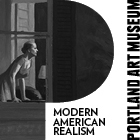
|
||
|
Portland art blog + news + exhibition reviews + galleries + contemporary northwest art
|
||
Talking Criticism Today at 11:30 AM on KBOO
I'll be joining Brian Libby, Barry Johnson, Lisa Radon and host Eva Lake to discuss
art criticism... since DK
Row's role at the Oregonian seems to have changed. It will be interesting
if they will make an official announcement and or actually replace him with another
critic in the role.
For example Randy Gragg as architecture critic was not replaced, essentially crippling the O's voice in architecture and urban planning. Row wasn't nearly as well regarded in the art community the way Gragg was though. I'm not going to catalogue the differences between the two here... but Row just wasn't as engaged in criticism as his predecessor and that fact was a missed opportunity. Lately, newspapers have redefined missed opportunities, the Oregonian isn't special. Long ago I realized that the venue in which criticism appeared was important... and newspapers were not the place too pursue cutting edge art criticism. Most artist's don't understand critics or criticism very well and often feel a great review is one that parrots their artist statement, only more eloquently. I understand that solipsism but it is worthless. Critics ultimately don't exist to validate artists or themselves but it is a bye product. Ideally. they seek to understand what and why things do and do not work in art. Thus, art critics are analysts of that which defies analysis. A critic must be curious but not easily impressed and part of the critic's job is to remain supple on both accounts. An ideal publication encourages this as well. Overall, journalism and criticism have some overlap but they are different creatures so I'll take a moment to discuss art criticism and help set up the discussion as I see it. Often at PORT we are so busy producing art criticism that we seldom discuss it directly. Perhaps it is the only reason we have kept the comments section of PORT when most sites that produce high level criticism don't... it gives us an opportunity to answer why or how things are done. Since PORT is the visual arts website of record for Portland I feel it is useful to keep an open a window into the process. Effective criticism isn't merely opinion mongering, it's a judgment that sets a precedent and whether one agrees with it or not creates a benchmark in a sea of opinions. An effective critic must take pains to qualify their pronouncements and take it seriously enough yo put their name on it. Context is key and having a strong background in the subject always helps. Though an academic credential isn't necessary it influences how you write. FYI I have a masters degree (focused on art and cultural history) and all of PORT's writers have academic backgrounds in art and design. Although I give PORT's critics a lot of autonomy I insist that when one of our critics presents a strong opinion, it is a highly considered one. Journalism is more about reportage and some analysis. Criticism is all analysis. Strong art criticism puts art before words. There are lots of critics who write simply to ingratiate and flatter, some just love their own words. Personally, I consider art criticism an enemy which I keep very close. Creating criticism, like all art experiences is a highly subjective exercise. Good critics present a rationalization for the subjective while examining the depths of that subjectivity. It is a form of honesty. An effective critic must judge, even though the market forces and personal connections all conspire to a general tone of pleasant praise... therefore a critic who has never written an unflattering review is not a critic. A strong critical voice doesn't come from sporadic activity. A critic has to write criticism regularly enough so that the cumulative reviews give the reviewer a voice. It is why PORT has staff critics. Criticism is not simply an expository exercise, i.e. a description of the show... that is simply a travelogue and is a type of journalism. It not art criticism which requires comparative context. Many so called critics are doing this today. Criticism takes a position and makes an argument of some sort. A review is not simply a checklist of academic references like Lacan, Foucault, Deleuze etc. That is an anatomy of influences or an intellectual CV. Instead, the reviewer should be able to synthesize their experience with whatever intellectual background they might have as a way to share the contextualized experience. Most of PORT's writers are artists so their background is weighted towards studio and theory. I'm versed in cultural history, literary and film theory and tend to keep away from pure "art speak" which I feel is aimed at creating a club of people with post graduate degrees which are required to understand the dialect. A strong critic has a strong internal compass so that friends, influential curators, gallerists and collectors have only marginal influence on them. They tend to review the shows heuristically without being caught up in the persona of the artist. In fact a good critic really watches their levels of attachment and detachment since the art world is very cosy. A great critic is very engaged and always on the lookout for new developments and trends while not necessarily buying into the buzz around certain artists and galleries. The strongest critics care deeply about art and the health of the cultural ecosystem's that produce it. Total detachment or outright heckling of a scene is a form entertainment and not criticism. Criticism is not so self-serving it's a form of sharing why things do and so not work well. It's ultimately a civic undertaking. Post show update and additions: The discussion on KBOO was necessarily short so here are some thoughts: First of all, yes there are forms of discourse that do not involve a judgment, but ultimately that is simply arts writing, not criticism... and therefore it isn't really a review either. Criticism has always been rare but today there are forces both economic and social that make it increasingly endangered. PORT publishes more negative and or "critical" reviews than any other art publication in Portland. Though other types of arts writing are indeed discourse, PORT is very committed to criticism as a form. Critiscism IS harder than other types of arts writing. There are greater repercussions and requires the writer to critique in a thoughtful way that opens a window to the forming of their judgment. A positive or negative review by a critic caries more weight than other forms of arts writing because it is both discursive and judgmental... ultimately being more revealing. Simple pronouncements don't cut it. We do a lot of arts writing as well but in those cases we often just interview the artist or curator. We only interview artists and curators that have had so many substantial reviews that simply writing a review would be redundant. There isn't really that much art criticism in Portland (most of it is descriptive or flowery arts writing) and it is where we lag behind some bigger cities like New York and London... though we are probably way better than Milwaukee, Seattle and Denver and even some other cities where most of the discourse comes out of art schools (which is valuable but different and ultimately not as validating as more independent review). I find most of what people consider to be good art writing in Portland to be mostly descriptive, name checking and soft on analysis. Still, not to toot our horn but Portland's somewhat better situation IS partly due to PORT and I'd like to thank everyone who writes for us and our sponsors. You make it happen and we reach over a million unique readers around the globe every year. There are lots of other publications besides us too and all of this helps Portland's situation. Still, I will reiterate... a review that does not take a critical stance on the work as an evaluation, then simply describes the work and perhaps some of it's influences is not a review at all. It is arts writing but a review implies an evaluation... being titled "a critic" implies you write criticism. Posted by Jeff Jahn on February 15, 2011 at 0:49 | Comments (3) Comments In your opinion, who offers a good model for criticism these days? Are there any reviewers/bloggers/etc. that you regard as specifically embodying some of the criteria you outline? Thank you. Posted by: Kelsey Ferreira Jerry Saltz, 90's Matthew Collings, 80's Robert Hughes, Tyler Green, Jenn Graves in Seattle, David Sylvester, Christopher Knight, David Cohen, Peter Schjeldahl is an excellent "poetic" art critic (I wish he would write about less established artists more but he writes very well). The quality of the artists does somewhat influence the quality of the review... if it is a positive review. Shane McAdams in NYC really stands out... when I was reviewing critics for the Warhol Foundation Arts Writing Grant he really stood out and deserves mention. Sue Taylor is a strong art historian... and I pay close attention to art history. History is a kind of cousin to criticism because there is so much analysis that creates an aggregate judgment of sorts. I like reading art history. My favorite critic to write in Portland was Karin Ellertson. She wrote for the WWeek, The Mercury and The Oregonian. She called a spade a spade and took no guff. Charles Baudelaire is an important influence too... TJ Clark and Dave Hickey are both very good arts writers though they seldom do critical review in print. Robert Storr is an excellent critic and having a 2 hour conversation with him last year was rather life-affirming. Patrick Collier writes a lot of negative reviews for PORT though I'm unsure how many realize they are negative... for example: http://www.portlandart.net/archives/2010/11/vanessa_renwick_2.html Some PORT writers concentrate more on interviews and essays... but a majority of those who write reviews for PORT have written non-flattering things at some point and more importantly they qualify their stances. Personally, I try to write definitive reviews of artists when they have definitive shows like: http://www.portlandart.net/archives/2007/01/virtuoso_vindic.html or very early "discovery" reviews like: http://www.portlandart.net/archives/2008/04/damien_gilley_a.html
Posted by: Double J It is not my intention to write negative reviews at the outset. In fact, when I set out to write, it is generally from an overall positive engagement with an exhibit. Otherwise, why bother? What may happen is that I spend an inordinate amount of time with the work thereafter, and while my analysis remains an act of generosity of sorts, some aspects of the work begin to reveal blemishes. To state the obvious, art isn't perfect, and to pretend it is for the sake of ego or sales does a cultural disservice.With that said, on occasion I am blown away by a single piece and that is good enough. Posted by: Patrick Collier Post a comment Thanks for signing in, . Now you can comment. (sign out)
(If you haven't left a comment here before, you may need to be approved by
the site owner before your comment will appear. Until then, it won't appear
on the entry. Thanks for waiting.)
|
| s p o n s o r s |
 |
 |
 |
 |
 |
 |
 |
 |
 |
 |
 |
 |
 |
 |
 |
 |

|
Site Design: Jennifer Armbrust | • | Site Development: Philippe Blanc & Katherine Bovee | |


![[TypeKey Profile Page]](http://www.portlandart.net/nav-commenters.gif)